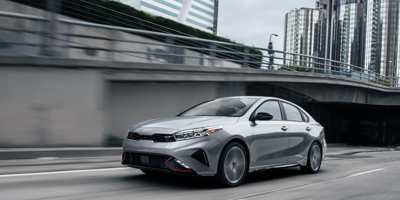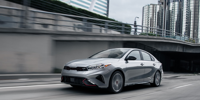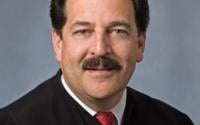
2020 Kia Forte
PASADENA - A divided federal appeals court has asked New York's highest state court to weigh in on the question of whether New York state law allows New York City and other cities in New York to sue Hyundai and Kia for allegedly making their cars too easy for criminals to steal.
In 2023, New York City and a host of other big cities and other communities across the U.S. pulled up in court, lodging lawsuits against the Japanese carmakers.
Other cities filing suit against the automakers included the cities of Seattle; Cleveland, Ohio; Columbus, Ohio; Cincinnati; Indianapolis; Milwaukee; St. Louis; Baltimore; Kansas City, Missouri; and others.
The city of Chicago also brought a similar action.
All of the lawsuits assert Kia and Hyundai owe potentially billions of dollars to the cities to help the cities recover their costs allegedly associated with a spike of thefts of Kia and Hyundai automobiles in those cities since 2022.
The lawsuit center on the so-called "Kia Boyz" phenomenon. So-called "Kia Boyz" car thieves used viral online TikTok video tutorials to exploit a flaw in a range of Kia and Hyundai vehicle models manufactured from 2011-2022. Those specific car models ordinarily relied on physical keys to start the vehicle.
Most other vehicles manufactured by other companies in that time frame included so-called engine immobilizer devices, which prevent a car’s engine from being started unless a driver uses a so-called “smart key,” embedded with a chip that sends a signal to deactivate the immobilizer.
However, most Kia and Hyundai models manufactured in that period did not include those immobilizers, which allowed thieves to hotwire the cars quickly and relatively easily, by removing a plastic cowl under the steering column and using a common USB cable to start the car.
Thieves often would then use the stolen vehicles for reckless and criminal behavior, often video recording themselves in the process, to generate views and likes on social media, or to engage in gang-related activity or armed robberies, among other crimes.
In 2023, New York City, for instance, reported that about 287 Kias and 415 Hyundais were stoled in that city in 2022, with nearly 1,000 more just in the four months leading up to the city filing its lawsuit.
In 2021, a combined 352 Kia and Hyundai vehicles were stolen in New York City, the city's police department said.
All of the lawsuits alleged similar spikes in thefts of Kia and Hyundai vehicles in the 2022 and 2023. The lawsuits generally all claim the car thefts amount to a public nuisance, which the cities claim has cost them big money to deal with and which the cities say the automakers could have prevented, but allegedly chose not to.
While the lawsuits were filed in courts across the country, the legal actions have been sent to California federal court to be considered simultaneously before the same judges.
However, all of the various lawsuits can also turn on legal questions arising from each of the states.
The automakers, for instance, have challenged the ability of New York City and other New York cities to bring their public nuisance claims at all.
In addition to New York City, the cities of Buffalo, Yonkers and Parma, and the town of Tonawanda, have also filed similar lawsuits.
Kia and Hyundai say the believe New York state law doesn't allow the cities to claim the automakers owe the cities a "duty" to prevent or address the alleged "public nuisance" caused by the car thieves.
In late 2023, California federal district Judge James V. Selna, in Pasadena, denied the manufacturers' attempt to dismiss the cities' lawsuits, saying the cities' claims of harm outweighed any concerns that allowing these lawsuits to proceed would lead to "unlimited liability" against the car companies for the behavior of criminals.
However, the judge allowed the carmakers to send a limited appeal to the Ninth Circuit court, centered on the legal question of whether the carmakers could try to escape - or at least, limit - the lawsuits brought by cities in the states of New York, Wisconsin and Ohio, specifically.
Taking up the question, in a 2-1 ruling, a panel of three Ninth Circuit judges affirmed the decision not dismiss the claims under Ohio and Wisconsin law.
But they said they believed they could not answer those questions under New York state law.
The judges said they did not believe the case could be "clearly resolved" on Kia's and Hyundai's claims that the cities essentially are demanding the carmakers answer for the conduct of criminals.
So the judges said they believed the question of how much "duty" the automakers owed to New York cities under New York law needed to be answered instead by the New York Court of Appeals, which functions as New York's state supreme court.
They asked the New York state court to answer the following question: "Did the Manufacturers owe the New York Municipalities a duty to exercise reasonable care in the design, manufacture, and distribution of their vehicles?"
"While we express neither agreement nor disagreement with these arguments, we think the New York Court of Appeals could conclude that the duty asserted by the New York Municipalities differs from the duty to control or prevent harm by third-party criminals," the judges wrote.
And they said that, while the carmakers may not have any kind of "special relationship" with the cities, they still may owe they "duty" to design their products to prevent theft.
"Thus, we cannot predict whether the special relationship rule bars the New York Municipalities from enforcing a duty of care related to the Manufacturers’ design, manufacture, and distribution of the Relevant Vehicles," the judges wrote.
Judges Mary Murguia and Jennifer Sung sided with the cities and said they believed the question needed to go to the New York Court of Appeals.
Ninth Circuit Judge Bridget S. Bade, however, dissented.
Bade said she believed all of the cities' claims against the automakers for negligence in designing and distributing their cars should be shut down. Bade said the cities' claims are preempted under federal law by federal motor vehicle safety standards governing "minimum theft-prevention requirements for passenger cars."
While the cities argued engine immobilizers are the "best way" to satisfy those standards, Bade said the carmakers are correct to point out the standards do not require the installation of such immobilizers to prevent theft.
Bade said she believed the cities "have pled themselves out of court by raising allegations that can only be plausibly read as requiring the Manufacturers (Kia and Hyundai) to install engine immobilizers," which she said the regulations do not do and which the court is not permitted to do under federal law.




